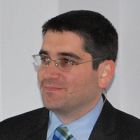ABOUT US
IDRA
How IDRA Works
IDRA is a group of researchers who carry out impact evaluations and other development-related projects. Our staff and affiliates include economic researchers, econometricians, impact evaluation and survey design experts, enumerator training and fieldwork specialists, programmers, and data analysts. They include internationally recognized experts on topics ranging from conventional impact evaluations, local-economy modeling, poverty, resource management, gender and ethnic equity, blockchain, food policy, international migration and refugee studies, and the law.

Prof. J. Edward Taylor
president / co-founder
J. Edward Taylor is a Distinguished Professor Emeritus in the Department of Agricultural and Resource Economics, University of California, Davis, where he joined the faculty in 1987.
His teaching and research are in the areas of Economic Development, Population and Resources; Labor Economics; Economy-wide Modeling; and Applied Micro-Econometrics. He teaches the Ph.D. field course "Agriculture in Economic Development" emphasizing household, village, and economy-wide modeling. At the undergraduate level, he teaches microeconomic theory, development economics and econometrics.
His research is concentrated in population, microeconomic development, and farm labor. The core of his work in microeconomic development has been the application of household-farm modeling techniques to the study of a range of economic problems in less developed countries, including internal and international migration, the adoption of new agricultural technologies, preservation of biodiversity, and nutrient demand.

Dr. Justin Kagin
co-founder / treasurer
Dr. Justin Kagin holds a Ph.D. in Agricultural Economics from the University of California, Davis, with over 15 years of experience working in the field of development economics. He has managed and worked on numerous agricultural, social protection, and other poverty alleviation projects. As the founder and CEO of Kagin’s Consulting, he has worked in numerous developing countries (several East and West African countries, Latin American countries, and countries of Eastern Europe and Asia). Kagin's Consulting has partnered with several UN agencies (UNFAO, UNDP, UNICEF, UNILO, and the World Bank), as well as the Bill and Melinda Gates Foundation, University of California, Davis, NGOs and government ministries. He is a published author and referee for various journals. And he is the founder and director of the Economic Diplomacy and Integrity Forum which has conferences around the world promoting moral solutions to problems of corruption, poverty, youth hopelessness, greed and other issues related to economics, politics and business. He is also a proud husband and father of four.

Prof. Mateusz Filipski
secretary
Mateusz J. Filipski is an Assistant Professor in the Department of Agricultural & Applied Economics at the University of Georgia. His research interests include rural transformation, migration, mechanization, technology adoption, health economics, and consumer behavior. Much of his research focuses on evaluating the economic impacts of programs and policies that aim to improve the lives of rural populations. He uses econometric, experimental, and structural modeling methodologies, including general-equilibrium simulations, to shed light on those issues. Prior to joining UGA, he was a Research Fellow at the International Food Policy Research Institute (IFPRI) in Washington, DC, where he was part of the Development Strategy and Governance Division; a postdoctoral scholar at UC-Davis; and a consultant for the Organization for Economic Cooperation and Development (OECD). He holds an Engineering and a Master’s degree from the French grande école Agro-ParisTech, and a PhD in Agricultural and Resource Economics from the University of California at Davis. He is fluent in French, Polish, English, Spanish, and has a working knowledge of Mandarin.

Dr. Anubhab Gupta
associate researcher
Anubhab Gupta holds a Ph.D. in Agricultural and Resource Economics (ARE) at the University of California (UC), Davis.
Before starting the PhD program at Davis, he obtained a master’s degree in Economics from the Delhi School of Economics and one in Applied Economics at the University of Arizona. Gupta’s research interests are on economy-wide impacts of development and agricultural programs with focus on structures and supply management in agricultural markets. He has conducted fieldwork in India, Kenya, Rwanda, Tanzania and Uganda. Gupta’s research have been published in academic journals like PNAS, World Development, Economic Letters and European Review of Agricultural Economics, and appeared in media outlets such as the BBC, Harvard Business Review, the Independent, and Public Finance International among others. He has consulted for United Nations Food and Agricultural Organization and World Food Programme, Tanzania Gatsby Trust and International Water Management Institute.
Gupta is a recipient of several research awards and fellowships, and received the UC Davis Outstanding Graduate Student Teaching award of 2017-18.

Amanda Lindsay
Amanda Lindsay is an Assistant Professor of Economics at Bates College. She is an environmental and resource economist whose research focuses on evaluating management of natural resources and quantifying impacts to resource users. Her current work is on small-scale and artisanal fisheries in developing countries.

Dale Manning
Dale Manning is an Associate Professor at the University of Tennessee with a joint appointment in the Baker School of Public Policy and the Department of Agricultural and Resource Economics. His research focuses on optimizing the interaction between the economy and natural capital, such as land, water, and biodiversity, to address environmental and resource challenges. As a member of the Climate Smart Agriculture and Forestry cluster, Manning's work aims to enhance agricultural productivity and resilience while contributing to climate change mitigation. His current research includes studying the economic impacts of biodiversity loss, climate change abatement in agriculture, and the effects of natural hazards on local economies.

Diane Charlton
Diane Charlton is an Assistant Professor of Agricultural Economics at Montana State University. Her research centers on the economics of agriculture, labor, and development, with a particular focus on the impacts of labor supply, immigration, and environmental change on agricultural productivity and rural communities. Charlton’s work combines empirical analysis with economic theory to understand how policies and economic conditions affect labor markets, food security, and environmental sustainability. She has contributed to studies on the effects of trade policies, the dynamics of rural labor markets, and the implications of climate change for agriculture.

Shenica S. Nelson
business manager
Shenica S. Nelson, M.S. is a Industrial Organizational Psychologist and Chief Operating Officer at SOPH Consulting, LLC- A Solution Driven Business Consulting Firm Specializing in Organization Operational Development, Grant Writing and Federal Contracting.
Her research interest includes business analysis, organizational development, corporate policy development and business education.
Interested in more information?
Please, send us e-mail and we will try to answer your questions